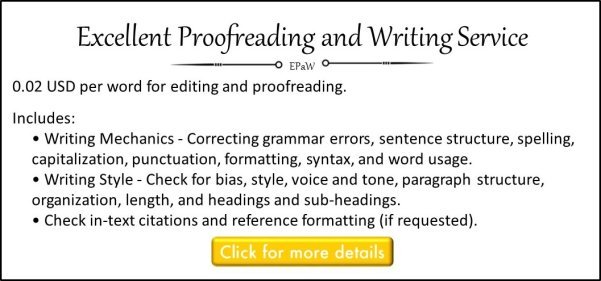ESL Writing Process
The ESL writing process is the same as the writing process you would use in your native language.
It is:
- Plan – Write – Finalize
Now as an ESL language learner the ESL writing process, in parts, will be different from that of a native speaker.
Particularly the planning and finalizing stages will take more work.
It's the writing part where you produce the piece of written text. But the planning and finalizing stages will determine if what you've written is good or bad.
Remember that what is good or bad writing will depend on your own level of English. No matter what level, your English language is at, you should always be doing exercises that you find difficult. Not too difficult but difficult enough so that you're stretching your abilities and getting better all the time.

Planning

1) Read and understand the assignment or decide what your topic should be.
Your writing needs to be focused.
If you're given a topic to write about, you need to write about that topic. If you need to write for your job, each item that you write will be for a specific reason.
However, if you're writing for yourself or just to practice, you still need a topic. It’ll be much better if you force yourself to stick to a topic. This will add discipline to your writing.
Make sure that you understand all the words in the assignment and what is wanted. If not look up any words to make sure you understand them correctly.
2) Plan how you will answer the topic.
If research is needed, do it now; look-up information on the topic. Give yourself enough to write about. You need knowledge about the topic to be able to write well.
Decide what you’ll say in your answer and the order in which you’ll say it.
Plan an introduction section where you introduce the topic and a conclusion section where you summarize what you've said in the main text. For the main text decide how many different points you need, what order you’ll present them in and any additional details you need to describe each main point.
3) Think of vocabulary that you want to use.
The whole reason for planning is to make the writing easier, so think of vocabulary that you might want to use when doing the writing part of the ESL writing process.
This can be a brainstorming session where you just think of words. But it would be better if whenever you found a new and relevant word during the research part you write it down and then try to use it in your own writing.
This'll help you use the new words. If you'd to look the word up it must be a new word or one that you’ve seen before and forgotten. This means that you need to practice using the word. You can do this by incorporating it into your writing.

Writing
The actual writing part of the ESL writing process should be fairly easy if you’ve done the planning right. You should know what you want to say and have already though of some suitable vocabulary.
So start to write.
Your first draft won’t be perfect but it'll be a start. You need to get a draft of your article down on paper so that you can start to improve it.
Just write the first draft. If you get stuck on the exact word to use in a certain situation, don’t worry, keep writing. Leave a gap or use an alternative which you can replace when you think of the best word later.
Once you’ve the first draft on paper, you’ll need to start to improve it.
- Read it - Make changes - Rewrite it
All the time it will be getting better.
Look for incorrect language choices, make the words you’ve used fit better.
Make sure that all the information you’ve included is related to your topic. If not remove it. Keep your writing concise and to the point. Good writing is clear and easy to read. Don’t try to be clever and use too many big words. Well written simple writing is much better than poorly written advanced writing.

Finalizing
The finalizing stage of the ESL writing process is where slowing down and taking some time to think will really benefit your writing.
See the ESL proofreading page and the proofreading section for help with the finalizing section.
To write English well you need to be able to find your own mistakes. Read your work and try to decide if it sounds like the English language books that you’ve been reading to learn vocabulary .
Check that the words you’ve used have been used correctly and use a good grammar book to make sure that you’ve constructed your sentences correctly. Use sentence constructions that you see in your English language reading material.
Remember to spend plenty of time finalizing your writing so that it’s the best it can be. The more that you proofread, correct and improve your own writing the easier it'll get and the faster you’ll be able to do it in the future. You need to practice this, the same as everything else to do with learning a language.

Afterwards
If you’re in a situation where your writing will be corrected and returned to you, you’re very lucky. You'll learn lots from this stage of the ESL writing process if you take time to look at all the comments, corrections and changes and understand them. Try to understand how the changes relate to what you wrote originally, why that was wrong and why the corrections are better.
If you need to, go and ask your teacher why the changes were made if you don’t understand the reason for the change, or what was wrong with the original you wrote. Don’t be afraid to do this. Your teacher will be happy to help you. Too few of our students ask questions and try to get better. A good teacher will always be happy to help their students.
If you don’t have a teacher to help you, you could try posting your writing to forums about English language writing and asking for feedback. Or finding a private English teacher who you could pay to spend an hour or two reading your writing and offering suggestions and corrections.
This part, learning from your mistakes, is very important. Try to make the most of it so that the whole ESL writing process will get better.

If you've an important document that must be just right you can use my proofreading service to improve it if you'd like.
Alternatively you can visit the Excellent Proofreading and Writing Facebook page where I’m happy to answer your questions or offer advice.

Return to ESL Writing from ESL Writing Process
Return to Excellent Proofreading and Writing Homepage from ESL Writing Process



By Jolyon Dodgson, copyright © 2011-2020.
Excellent-Proofreading-and-Writing.com - Proofreading and writing help for excellent first impressions.





New! Comments
Have your say about what you just read! Leave me a comment in the box below.